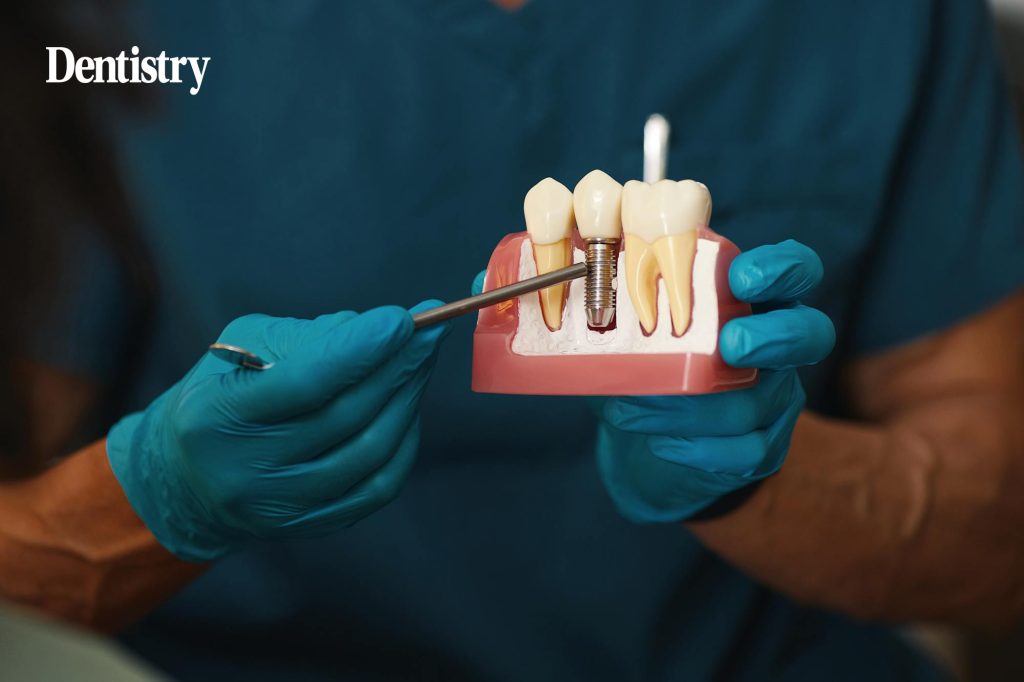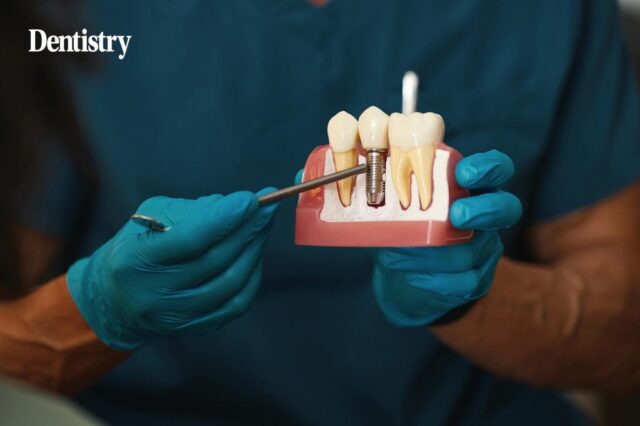
Dental implants used to replace single teeth function well even after several decades, according to new research.
This research represents the longest follow-up study of single dental implants in the world.
Carried out by a team at the University of Gothenburg, the study is based on a follow-up of a small group of patients who received single implants to replace missing teeth between 1982 and 1985.
Of the 16 patients who received implants during this period, 13 participated in the follow-up, conducted at the Brånemark Clinic, Public Dental Service Västra Götaland. These 13 patients had 18 implants in total.
‘It is impressive that the single implants function so well after such a long time,’ said Sargon Barkarmo, prosthodontist and senior lecturer at the University of Gothenburg.
‘Even though the study included a small number of patients, the results show that the implants remain in place and that the bone loss around them is virtually unchanged after 40 years.’
The crowns placed on the implants had a shorter lifespan than the implants themselves, the study found. At the 40-year follow-up, around 60% of the original crowns remained, with many having been replaced one or more times.
Older dental implant systems ‘highly effective’
The study concluded that implants placed using well-planned surgical techniques and given sufficient healing time have an excellent long-term prognosis.
The researchers added that older implant systems, which have been ‘highly effective’, are no longer available on the market. This is due to the continuous introduction of new systems that quickly replace older ones, they say – despite their proven long-term success.
Barkarmo added: ‘Today, methods that accelerate treatment and healing are commonly used. These approaches also need long-term follow-ups and careful evaluation to ensure equally good results over time.’
Earlier this year, scientists successfully grew human-like replacement teeth in a lab setting and implanted them into the mouths of miniature pigs.
Human and porcine tooth cells were combined and grown into tooth-like structures inside samples of pig tooth. This approach was taken because pigs grow many sets of teeth throughout their lifetime.
Once mostly grown, the teeth were implanted into the jaws of pigs for two months and then removed. The researchers found that the finished teeth had developed hard layers of dentin and cementum.
The researchers hope that the new development will eventually be used to replace human teeth. Dr Pamela Yelick of Tufts University and lead investigator on the project said: ‘We’re optimistic that one day we will be able to create a functional biological tooth substitute that can get into people who need tooth replacement.’
Follow Dentistry.co.uk on Instagram to keep up with all the latest dental news and trends.
Adblock test (Why?)






